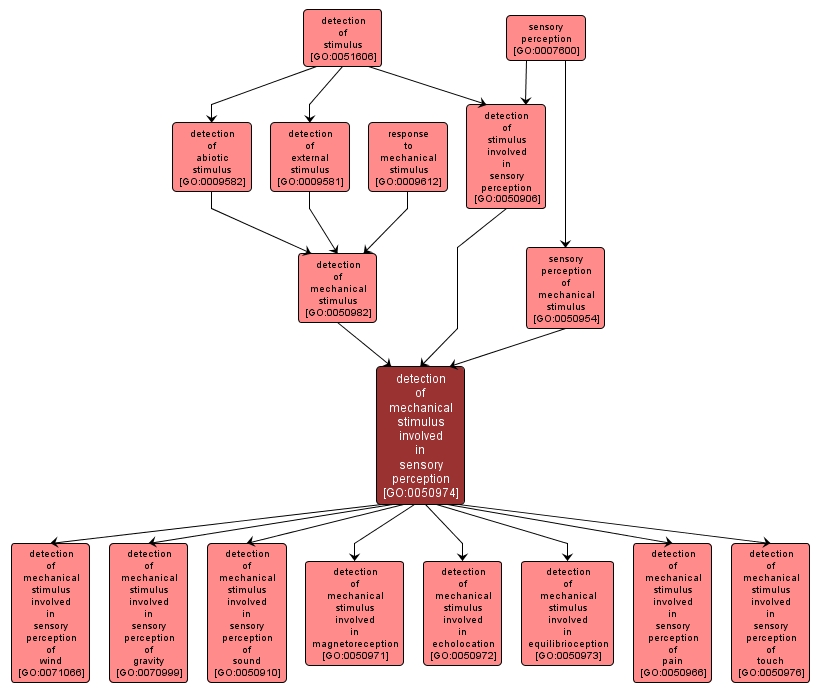Synonyms:
- sensory detection of mechanical stimulus
- sensory perception, sensory detection of mechanical stimulus
- sensory perception, sensory transduction of mechanical stimulus
- sensory transduction of mechanical stimulus
- sensory detection of mechanical stimulus during sensory perception
- sensory transduction of mechanical stimulus during sensory perception
|














